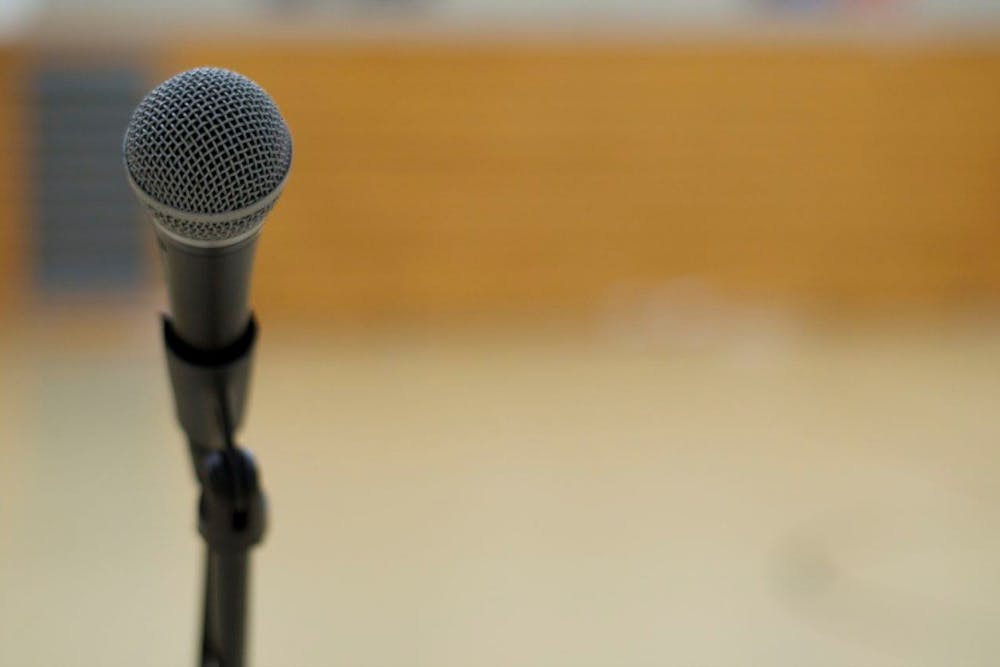By Paris Franz, For The Miami Student
Russia has recently been the center of tensions, conflicts and scandals. From the names of President Vladimir Putin's close associates in the Panama Papers leaked in early April to the increasing instability of the sixth largest economy in the world due to low oil prices and the increase of oil supplies worldwide, the region faces constant pressure.
Every semester, the Havighurst Center for Russian and Post-Soviet Studies at Miami University hosts the Havighurst Colloquia Series, a weekly lecture series attached to an undergraduate cross-listed course. The lectures are open to the public and the theme of the series changes each semester.
The current topic is Religion and Identity in Russia and Ukraine to focus on roots of the current conflict in Russia and Ukraine. The topic of the upcoming fall semester is Russia in War and Revolution, serving as a lead up to the 100th anniversary of the Russian Revolution in 2017.
The last speaker of this semester's colloquia series will be professor Andrii Krawchuk on "The Impact of the War on Religious Identities in Ukraine." This colloquium will take place at 11:30 a.m. April 25 in 209 Harrison Hall.
"What's unique about [the series] is that we always bring in about half a dozen speakers from outside Miami-leading specialists in the field or topic that's being taught in the colloquium," said Scott Kenworthy, associate professor of comparative religion and current instructor of the colloquia series' associated class.
As the course instructor, Kenworthy is responsible for inviting the colloquia series' speakers and choosing a lineup which pans from the historical aspects of religion in Russia to its current impacts.
"The first half of the semester was more historical in orientation and the second half of the semester is more focused on the contemporary concerns and issues," said Kenworthy.
Kenworthy said it's hard to understand the current issues in both Russia and Ukraine without first understanding the region's historical background.
The series and the associated course aim to expose students and attendees to the intricacies of the current issues in Russia and east Europe.
"Too often both the media and our government tend to take simplistic perspectives of things which distorts the way we understand conflicts," said Kenworthy. "So to understand the deeper cultural and historical and religious facets of a conflict helps us to understand really what's going on and why."
Adam Rodger, first year history masters student, found the colloquia series expanded his understanding and perspective of the conflict in Russia and Ukraine.
Enjoy what you're reading?
Signup for our newsletter
"The context of [the colloquia series] is absolutely vital in understanding not only the relationship that Russia has to the rest of the world, but the specific crisis we're having right now in Crimea and Ukraine," said Rodger.
Karen Dawisha, professor and director of the Havighurst Center, said the center aims to promote a deeper understanding of Russia and states in the former Soviet Bloc.
The Center also focuses on providing students with an interdisciplinary background on Russian, East European and Eurasian studies.
"We've hired a number of faculty who are in different departments-from comparative religion to anthropology, history, political science," Dawisha said. "We really want our students to get a broad, interdisciplinary understanding of this part of the world."
Dawisha said that especially now, serious study is needed to understand the issues and events of the region. She also wishes the region was more accessible for students to travel to and learn in.
"Russia has become more authoritarian," said Dawisha. "As relations between our countries return to Cold War levels of hostility, we need to understand what's going on."




